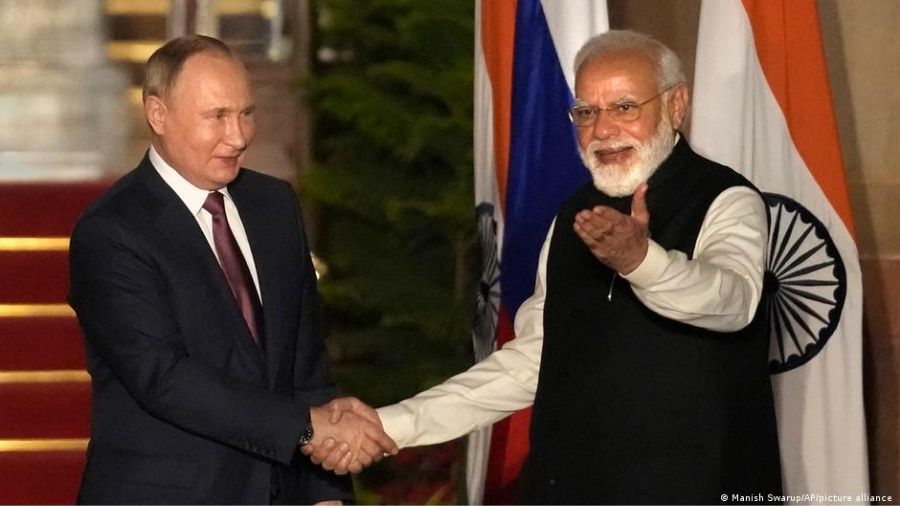The Indian prime minister, Narendra Modi, has repeatedly spoken of the country’s desire for an early end to the war in Ukraine. On Monday, the Ukrainian president, Volodymyr Zelensky, formally nudged the Indian leader to play peacemaker at a time when New Delhi is in charge of the G20 group of nations for the next year. Yet, far from welcoming the comments from Mr Zelensky, who made his request to Mr Modi public on Twitter, the Indian government appears squeamish about committing to more than the principle of peace. That hesitation underscores the delicate balance that India has sought to strike over Europe’s biggest conflict since World War II. While buying unprecedented levels of Russian oil at subsidised rates, India has boldly refused to buckle under Western pressure over sanctions against Moscow. At the same time, India — without directly condemning Russia for its invasion of Ukraine — has made it clear to the Kremlin that it is unhappy about the war. However, that juggle is easier to keep up when it concerns New Delhi’s direct interests, such as energy. Playing mediator over a broader slate of issues at stake in the war is harder — but it could also bring greater dividends. If India is to end its reputation as a reluctant power-in-the-making, it must step forward now.
To be clear, there are limitations to what any mediator — including India — can do. India’s purchase of Russian crude has already soured ties with Ukraine, so getting Kyiv to trust New Delhi will not be easy — whatever Mr Zelensky might say in public. Still, India has a ready audience in both Moscow and Washington, the two powers whose proxy battle is playing out in Ukraine. And New Delhi has already shown what it can do: India is widely believed to have played a role in keeping Russia committed to the United Nations-brokered deal to ensure Ukrainian grain is shipped out through the Black Sea. With the G20 presidency, India will have the authority over the next year to take the lead in pushing the world towards peace. It is a chance India must not miss. The country’s attempt at equidistance in the war has drawn allegations of hypocrisy and opportunism. If India were to instead use that posture to negotiate peace, its stature would stand enhanced, and its critics quietened. A much weaker India played peacemaker in the Middle East in the 1950s. It must do so again, this time in Europe.











